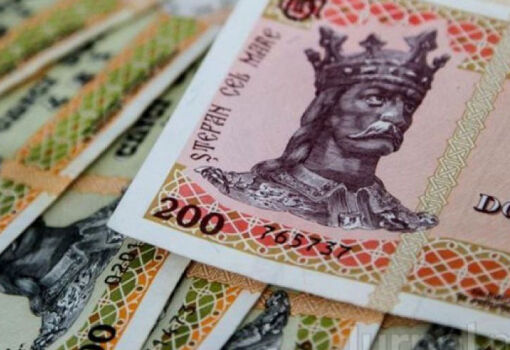
Sergei Merzhan
Desired
First of all, reformers face a big problem of control, which they are trying to solve in various ways. This was the subject of a two-day seminar held last week under the auspices of the World Bank “Monitoring of public procurement: practice, experience and innovative approaches”. Experts from different countries shared with their Moldovan colleagues their experience in monitoring and developing electronic procurement systems, using AI, strengthening internal controls, etc.
The event took place in the context of ongoing efforts to modernize the public procurement system and within the framework of the project “Public Procurement Efficiency and Value for Money in the Republic of Moldova”, funded by the multi-donor trust fund M-GROW (“Moldova – Growth, Sustainability and Opportunities for Well-Being”).
The World Bank has allocated $4 million to Moldova for modernization of electronic public procurement systems. A grant agreement was signed in May. The current visit of the World Bank mission was devoted to “assessing the progress of the project and identifying support measures for modernization of the electronic public procurement system”.
The entities involved in the project – the Ministry of Finance, the Agency for Public Procurement, the Center for Information Technology in Finance, and other central and local authorities – are planning steps to develop a new electronic system to replace the current MTender platform and to strengthen the “institutional capacity” of the agencies.
“The decision to develop a new automated information system “State Procurement Register” (AIS “RGZ”) is due to the need to create a platform based on modern technologies, much more advanced than those used in the current system. AIS “RGZ” will cover the entire procurement cycle – from planning to contract management and modification – and will allow integrating artificial intelligence tools, being developed in full compliance with EU standards and practices,” the Ministry of Finance said in an official statement.
According to Sergei Merzhan, Program Director of Expert-Grup, if the decision in principle to replace the current system is made, “it is necessary to approve at the government level a new concept of the electronic system, a kind of terms of reference, since we are talking not only about technical solutions, but also about the functionality of the system, its development and implementation, maintenance and many other things that ensure its performance”.
So far, the Ministry of Finance is sharing information about the measures it has taken, updating the secondary regulatory framework. And that’s about it. For example, it has undertaken “hiring a national expert to develop business processes and technical specifications, defined procurement processes, developed technical specifications for the development of a new system and prepared documentation for launching a procurement procedure for the developer of IT solutions,” the ministry said.
In addition, the ministry, in partnership with GIZ and the State Chancellery, is developing a comprehensive mechanism for monitoring strategic procurement by combining the project.gov.md and SI e-Monitorizare platforms using the MConnect infrastructure. The new mechanism will make it possible to track the implementation of strategic projects, expenditures and automate reporting.
In mid-October, the government approved a new Regulation on the planning of public procurement, “contributing to the harmonization of the national system with European standards”, the essence of which is to regulate the commensurability of the needs and current financial capacities of the procuring authorities.
All this will take place against the background of centralization of functions, which implies unification of standardized procurement in the hands of one sectoral body. For example, paper will not be purchased by every agency separately, not to mention other “essential needs”. The customer, accordingly, will be entitled to divide the contract into lots. The procurement plan may be adjusted in case of exceptional situations, changes in legislation, adjustments to the budget or sources of financing, the need to harmonize or correct errors in the original plan, etc. The procurement plan may be adjusted in the event of a change in the budget or sources of financing.
However, it is not only procuring entities that attempt to wishful thinking. The functionality of the current system, contrary to the declarations, does not cope with the requirements of monitoring efficiency and compliance with established procedures. Especially in the case of low-value procurement, the threshold of which is constantly rising, while the problem of recognizing whether there is or is not splitting remains.
Actual
The assessment of the country’s progress in this area of European integration efforts made by the expert community is far from excellent. “The lack of clear transparency and performance indicators, especially for low-value procurement, limits monitoring. The Public Procurement Agency continues to carry out oversight activities, but its capacity is affected by the lack of staff and the low level of implementation of issued regulations,” says Serghei Merzhan.
According to the report prepared by the Agency for Public Procurement, in 2024, low-value public procurements amounting to 2612.6 million lei were carried out, of which 358.0 million lei (13.7%) with the publication of a tender announcement and 2254.6 million lei (86.3%) through direct contracting. The total amount of low-value sectoral procurements carried out in 2024 amounted to 379.5 million lei, of which 181.3 million lei (47.8%) with the publication of a tender announcement and 198.2 million lei (52.2%) through direct contracting. At the same time, the report does not indicate the number of low-value purchases made and the number of low-value contracts concluded. Such purchases are monitored manually – there are no digital tools or tracking methodology.
Apart from the signed grant agreement, the ongoing update of the legislative framework can hardly be called progress. Key draft laws have been developed, including a new Law on Public Procurement and Law on Procurement in the Sphere of Defense and Security, and a new Law on Concessions for Works and Services has been approved. Model specifications for certain types of procurement were also developed. However, some of the planned activities were eliminated, canceled or postponed. And measures to prevent anti-competitive practices or collusion are only on the way out.
Model technical specifications with sustainable development criteria were developed for three procurement items (cars; computing equipment; printer paper), and some existing model technical specifications with sustainable development criteria were revised (organic vegetables and fruits, energy efficient double-glazed windows and doors).
The draft of the new law, harmonized with EU requirements, has been in parliamentary committees since last year. Obviously, a lot of time will pass before its adoption, since its gradual entry into force is planned only from January 1, 2027. Without a new system of electronic procurement, many of its provisions will be unrealizable. As well as European approaches will remain unrealizable.
The draft law, for example, stipulates that specific exemptions for procurement in the financial and banking sector, as well as for contracts for services for printing ballot papers and other electoral documents, will be abolished only from the date of entry into force of the Treaty of Accession of the Republic of Moldova to the EU.
Among the introduced elements of the new law on public procurement:
- clarifications and additional provisions that aim to ensure a more precise and adapted application of the rules for mixed contracts;
- additional clarifications on the definition and classification criteria of homogeneous goods, clarifying their applicability in public procurement procedures;
- a separate chapter on exceptions to the application of the law, which includes a comprehensive and structured description of them;
- introduction of a provision on procurement involving procuring authorities from RM and procuring authorities from EU Member States;
- differentiation of the regime applicable to central and local public authorities in accordance with the requirements of the Directive, including the establishment of separate thresholds and the application of flexible mechanisms for local public authorities.
Also, according to the expert community, given the difficulties with monitoring, the introduction of increased state fees for filing appeals in public and sectoral procurement procedures looks strange. “This amendment restricts SMEs’ access to justice, is disproportionate, and contradicts national and European legislation,” says Sergei Merzhan. The cost of appeals has already reduced their number, says the expert, and will lead to an increase in the cost of public and sectoral procurement, including due to the restriction of competition and the inclusion of the relevant tax in the cost of the offer. This generally contradicts the goals of the Program for the Development of the Public Procurement System.
According to the report, in 2024 the Agency monitored 653 procurements, or 1.9%, including thematic monitoring at 4 procuring authorities. 193 monitoring reports were prepared. Based on the results of the monitoring, several cases of offenses were initiated with sanctions imposed on the responsible persons of the agencies. Ten out of 12 applied sanctions for offenses are related to the lack of planning or inadequate planning of public procurement, as well as their artificial division through the conclusion of separate contracts for a small amount in order to evade the application of the relevant legal procedures. According to the information provided by the Procurement Agency, the number of monitoring activities increased in the first 5 months of 2025, with 175 reports prepared. The improvement of indicators in this area is due to the increase in the number of Agency staff responsible for procurement monitoring (from 4 to 12 persons).













